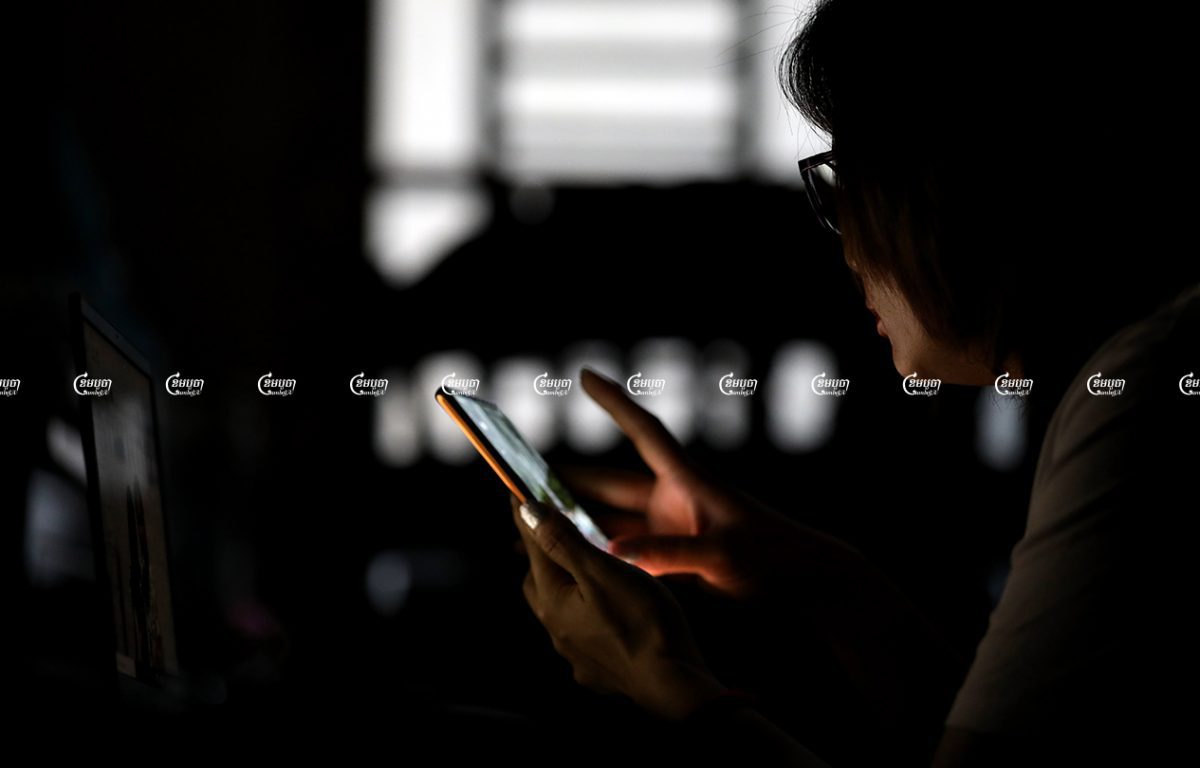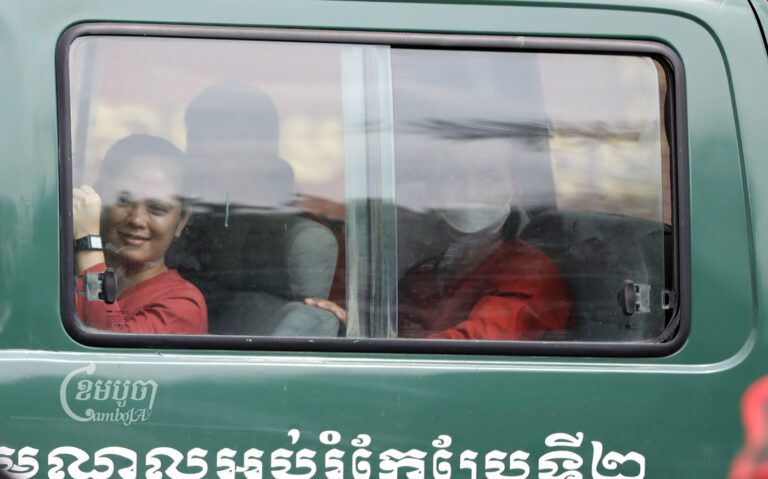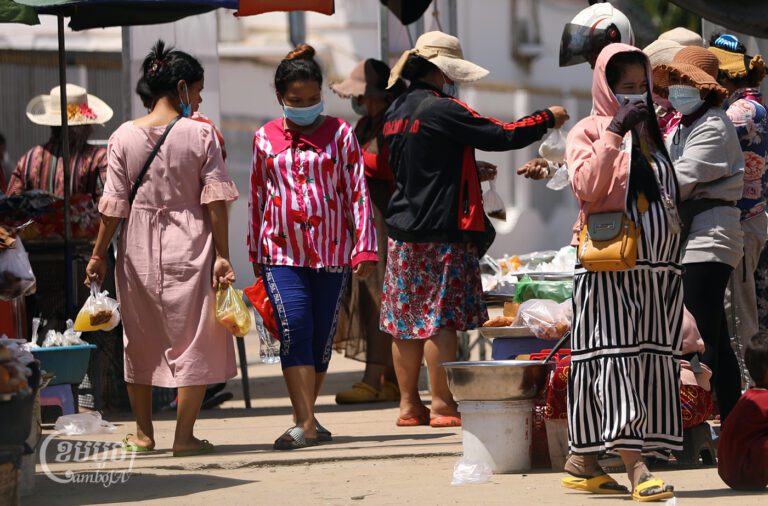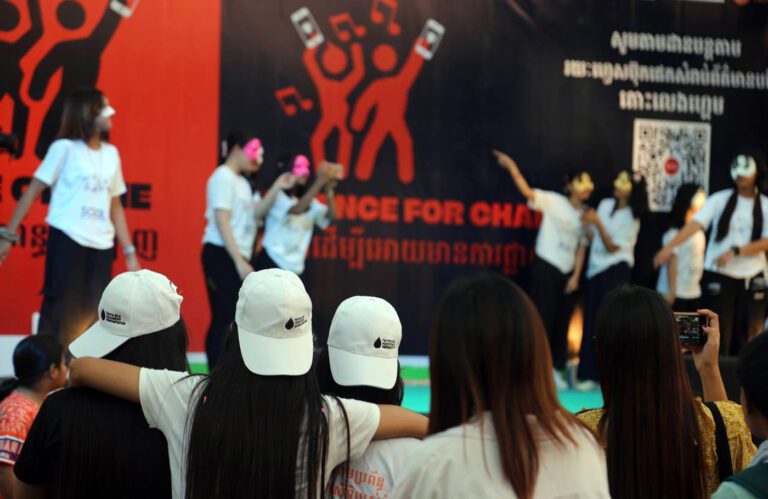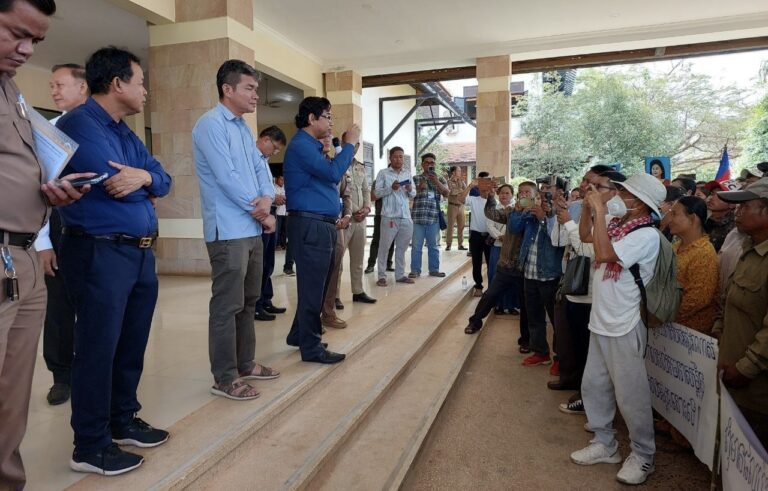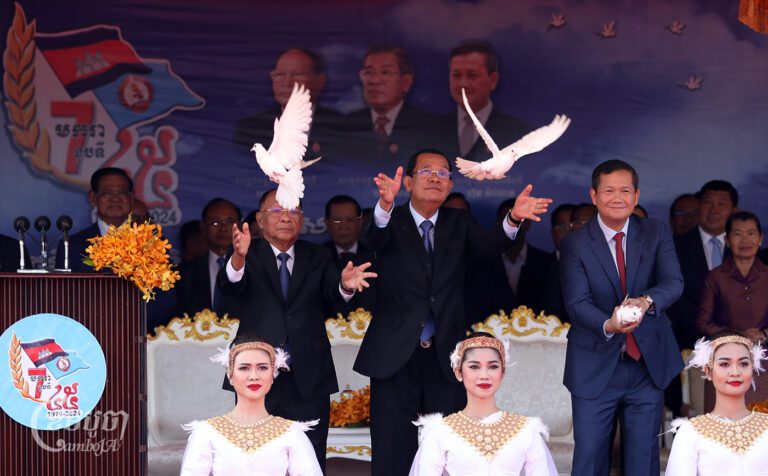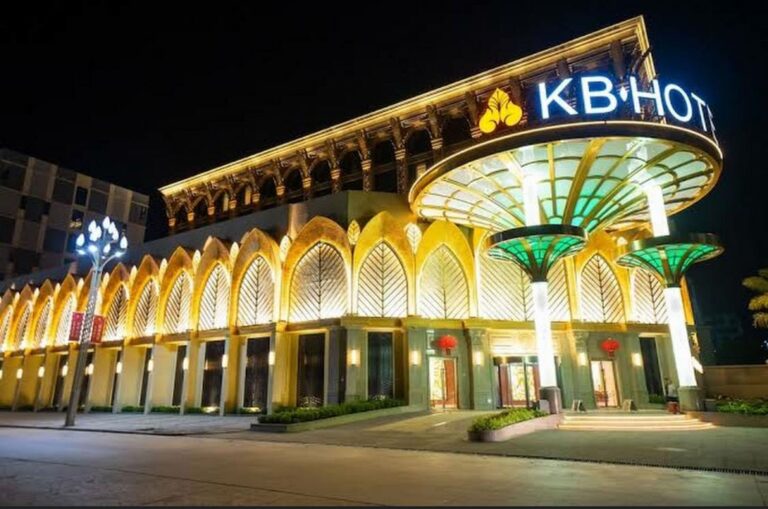When underage Sophal was targeted online with “revenge porn” by an older man she’d previously had sex with, she tried her best to ignore the real-world stares and comments from people who knew her.
“Some people said that I am a girl who goes around [at night] and only brings embarrassment. when I walk by my neighbours’ houses, I try to walk by normally no matter what they say,” said Sophal, 16, to the rights group Licadho.
Sophal’s story was included in a new Licadho report released Thursday detailing the results of a study the rights organization had done researching online harassment in Cambodia.
In an interview with Licadho, Sophal said she agreed to have sex with the 24-year-old man, but that he secretly filmed her without her consent. When Sophal declined the man’s requests to meet again, he spread the video of their sexual encounter on Facebook — even somehow posting it from Sophal’s own account after gaining access to it.
Sophal said her friends saw the video on social media and believed she had willingly posted it.
“They said I am so bad for sending pornographic photographs to others,” she said. “I felt nervous because I was afraid my mother would hear.”
Police later charged the man with violating Sophal’s privacy by recording her image, and a court convicted him in absentia. The man was sentenced to one year in prison and ordered to pay $5,000 in civil compensation, but he has not been detained at any stage of proceedings nor paid the compensation owed.
Sophal’s story and others included in the Licadho report suggest that social media with the potential to promote active civic and political participation “is being thwarted by government surveillance and harassment, as well as discrimination, sexual harassment, threats, and other forms of online harassment from private individuals,” the rights group stated.
Between July and August, Licadho interviewed 718 people in an online survey. The respondents were mostly women, and 80 percent of all survey participants lived in urban areas.
The survey found nearly 40 percent of the total respondents had experienced online harassment, with 20 percent of female respondents had experienced sexual harassment online.
Facebook-owned platforms are the leading sites of online harassment, Licadho found, with ninety-five percent of the survey respondents who reported experiences of online harassment saying it had occurred on at least one platform owned by Facebook. Telegram, a messaging app, was the next most common site of harassment.
In the report, 97 percent of survey respondents said they regularly used Facebook, while 84 percent used Messenger and 83 percent Telegram.
A freelance female reporter who spoke to CamboJA under the name Thovan said she typically experiences harassing behavior online.
Though many of the respondents to the Licadho survey were harassed by people who used anonymous accounts, Thovan said sources she has spoken to in her work have used digital platforms to make sexual advances toward her.
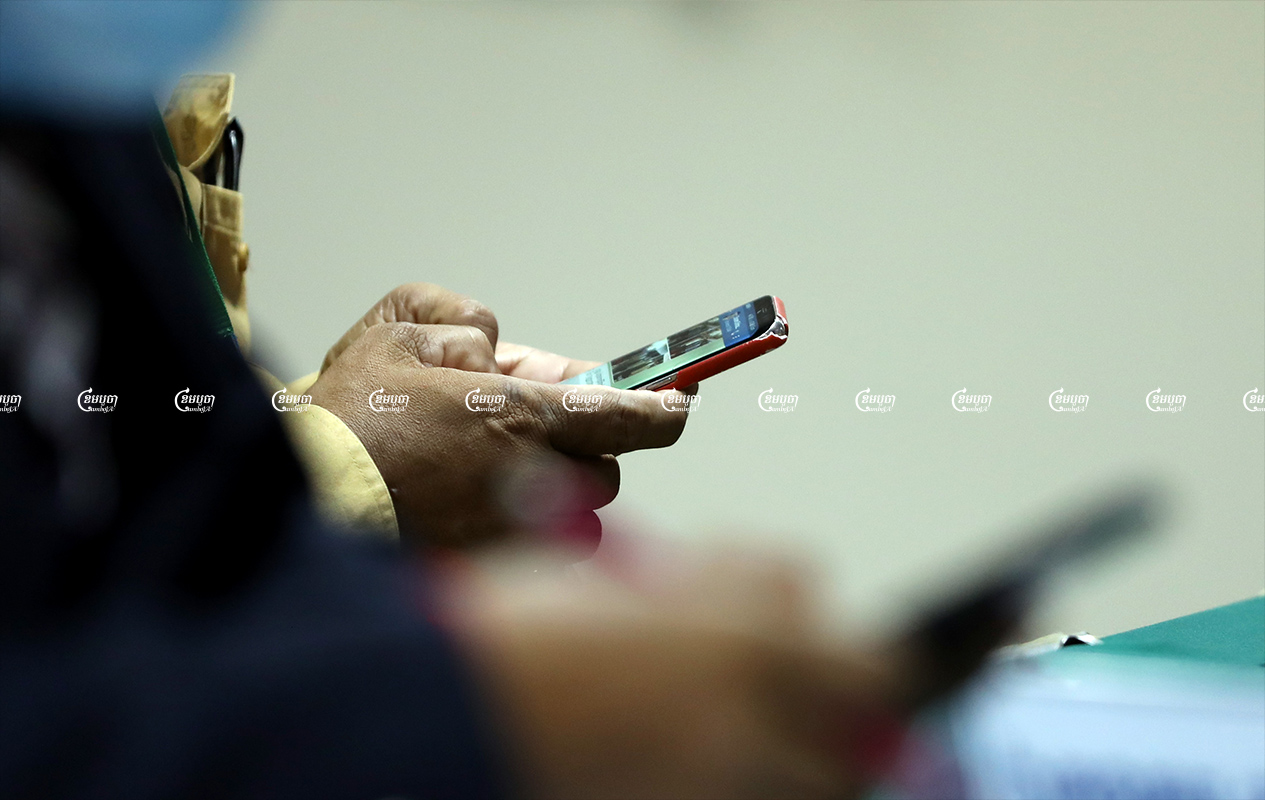
One man turned a conversation for work into something much more unpleasant.
“I could not believe that he seemed so nice at first, but then things completely changed. He used disgusting words to me and asked a girl at his own daughter’s age on a date. It was absolutely disgusting,” she said.
Thovan said that when she encounters such men, she doesn’t usually tell her friends or family about it.
“I find it hard to speak it out when it comes to sexual harassment. I feel ashamed, so I better keep it on my own,” she said.
However, she encourages others who face online harassment to speak up, and never keep silent in order to find an appropriate solution at the early stage to avoid undue stress about the situation.
Licadho also urged authorities to help victims of harassment by applying existing laws to hold perpetrators accountable. The group said the Law on the Suppression of Human Trafficking and Sexual Exploitation can similarly be used to address some cases of online harassment, such as the distribution of pornography.
Lucia Soleti, the chief of UNICEF Cambodia’s child protection unit, told CamboJA that while online content proliferates in Cambodia, digital literacy and skills lag among both children and parents. This puts children at risk of suffering online exploitation or abuse, Soleti said, adding that the risks have been exacerbated during the COVID-19 pandemic.
In the first half of 2020, a national hotline reported a 20 percent increase in the prevalence of child sexual abuse material reports.
“As Cambodian schools have utilized online learning modalities for nearly 18 months, children have spent more time online than ever before for learning, socialization, and play, increasing online risks,” Soleti said.
She said online child sexual exploitation prevention requires practical action and collaboration from relevant government institutions, development partners and non-governmental organizations. She also said the private sector needs to play a role in digital business and communities.
UNICEF is currently working with partners to strengthen government capacity for data collection and multi-sectoral coordination relating to child sexual exploitation and abuse.
In a UNICEF analysis of online child sexual exploitation in 2019 that asked Cambodian children about their experiences online, 60 percent of respondents perceived a risk of online sexual exploitation and abuse when they used the internet, such as grooming or being forced to create and share child sexual abuse materials.
Representatives of the Cambodian government said they conducted outreach to women who had also experienced similar kinds of harassment.
Nhen Socheatra, general director of the Ministry of Women’s Affairs’ general department of social development, said the ministry has been working with partners to prevent violence against women and girls both on- and offline.
“We always organize online campaigns to raise public awareness about the prevention of abuse and intimidation of women and girls online,” she said.
According to this week’s Licadho report, Cambodia is home to 21 million mobile connections, and 90 percent of social media users access internet services with a mobile phone. The report said social media use grew by 24 percent in 2020, as internet access continued to expand across the country.
The rights group said online harassment potentially impacts the 8.86 million Cambodians – more than half the total population – estimated to use the internet as of January.
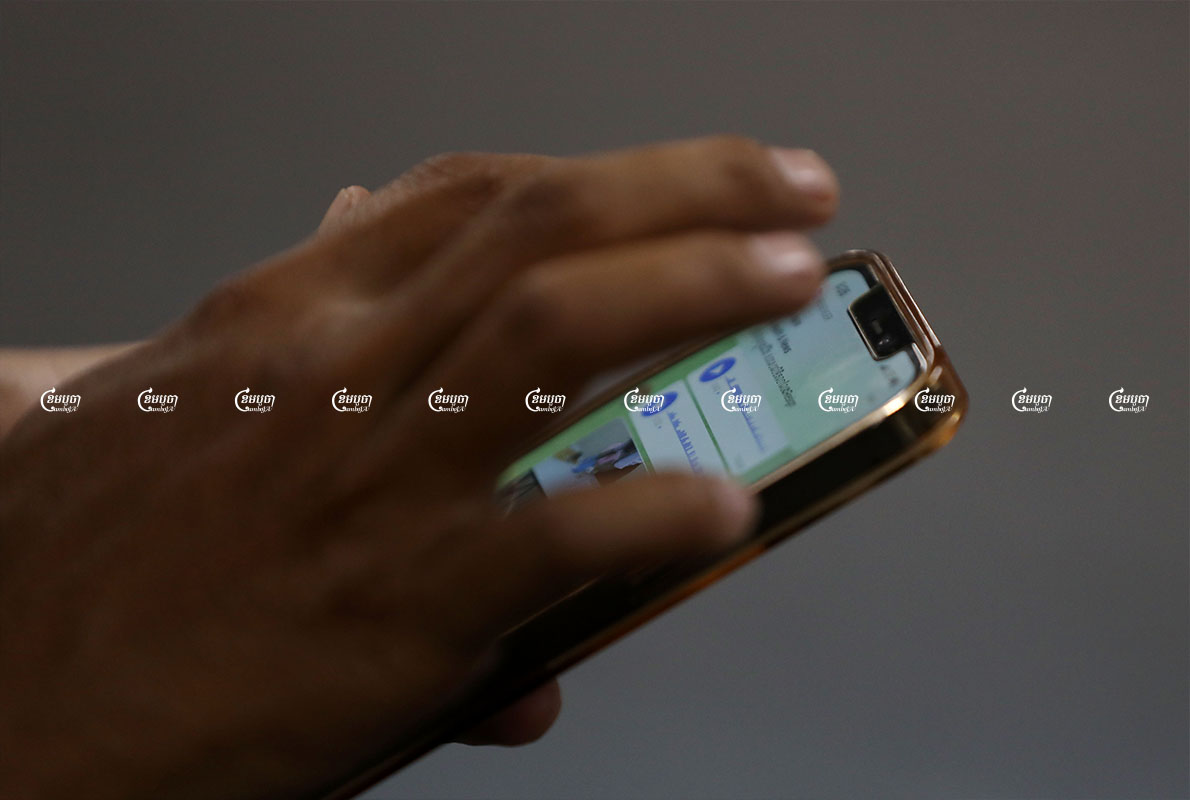
Government online surveillance
The Licadho study also found the government has continued to use its extensive surveillance network to crack down on online expression mostly from activists. Pointing at the use of Facebook platforms to conduct this surveillance, Licadho called on the tech giant to do more to protect human rights online.
Besides causing personal or emotional harm to victims, the report stated, online harassment in Cambodia by authorities and individuals is undermining freedoms of expression, privacy, and access to information.
“The Cambodian government routinely harasses and imprisons environmental and human rights defenders, political opponents, journalists, and regular social media users for their online expression,” the report said.
In a press release, Licadho director Naly Pilorge directly called on Facebook to do more to protect users in Cambodia.
“Facebook is failing people in Cambodia,” she stated. “Facebook must take a public stand against government surveillance and harassment and take responsibility for the various types of harassment that are widespread across its platforms.”
Justice Ministry spokesman Chin Malin said the report is nothing new, saying the authorities take legal action against those who abuse the law.
“Contrasting opinions will not be a problem because the general public can express their opinions freely,” he said. “Authorities that enforce the law against those who violate the law and infringe on the rights of others, this is not online harassment and persecution. These are crimes, and the perpetrators must face a legal response.”
In 2020, Licadho recorded the arrests of 158 Cambodians due to their online expression. The rights group said that by the end of the year, 73 of those people remained in prison.
According to its latest report, Licahdo shared key findings with Facebook in October and November and asked for clarification. The company acknowledged receiving these enquiries but did not respond to any questions or follow up further, Licadho said.
Authorities often use speech-related charges such as incitement to commit a felony, public insult, and insulting the King under Cambodia’s judiciary to imprison people for their online expression. Often social media content, including private communications, are the only evidence presented in such trials.
Chak Sopheap, executive director of the Cambodian Center for Human Rights, said the government has drafted many laws and sub-decree to control internet use. She listed the push to create a National Internet Gateway and the Law on Cybercrime as raising significant concerns for privacy and freedom of expression.
“The weaponization of such problematic laws means that online surveillance and online harassment frequently go hand in hand, sometimes even resulting in judicial harassment and prosecution,” Sopheap said. “This is highly concerning, and the government must be reminded that it has an obligation to uphold the rights to privacy and to freedom of expression, including online, which are fundamental human rights.”


